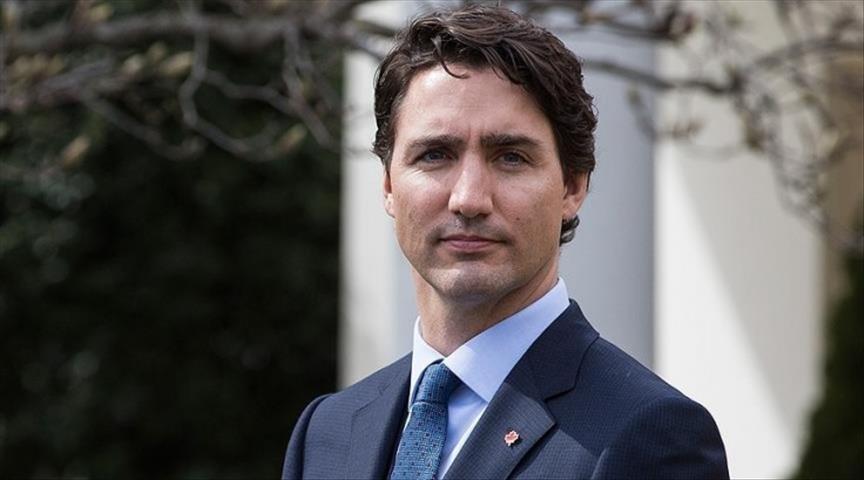A border adjustment tax the U.S. administration is considering to implement would hurt the economies of the U.S. and Canada, Canadian Prime Minister Justin Trudeau said Thursday.
Trudeau highlighted the strong interconnection between the two economies, and said in his speech at the IHS CERAWeek 2017 energy conference in Houston that "... anything that creates impediments on the border -- tariffs, new taxes -- is something that we are concerned with."
The prime minister said if taxes are laid on each of the items that travel back and forth across the two countries' borders, then "you're going to be hurting not just the Canadian economy but the American economy as well."
"We believe in trade that is free and fair. Canada and the U.S. are making sure that we are not unduly limiting our capacity to amplify each other's success," he said.
"You can applaud against the border adjustment tax," he said to cheers from international executives of energy companies in the audience.
A border adjustment tax would force American companies to import their goods more expensively, and shift the trade towards domestic suppliers -- a move the U.S. President Donald Trump wants to revitalize for American manufacturing.
American companies, however, may have to pay higher prices to find new manufacturers, or pay higher taxes to continue buying from Canada. Both, however, would mean higher sales price for American consumers and fewer exports for Canadian industries.
- Canada is top customer of two thirds of U.S. states
Trudeau said the flow of goods back and forth across the two countries' border is worth around $2.5 billion daily.
"Last year alone, Texas trade with Canada was worth $35.1 billion. Texas exports to Canada were worth nearly $20 billion. Imports from Canada were $15 billion. That translates into thousands of good, Texan jobs, my friends. By our reckoning, about 460,000," he said.
"Canada buys more from the U.S. than any other country does. We are the number one customer of two thirds of U.S. states -- and in the top three for 48 states," he noted.
- Canada provides more than 40 percent of U.S. crude imports
Trudeau explained that apart from the strong economic ties between Canada and the U.S., the two countries also share common energy strategies.
"Nothing is more essential to the U.S. economy than access to a secure, reliable source of energy. Canada is that source. We have the third largest oil reserves in the world, and provide more than 40 percent of America’s imported crude. And this extends beyond oil. We supply you with more electricity and uranium than any other country," he said.
"No country would find 173 billion barrels of oil and just leave it in the ground," he said, adding that he hopes to connect Canada’s oil resources to global energy markets.
The prime minister cited the three new pipeline projects that would increase energy interconnection between the two countries.
Kinder Morgan’s Trans Mountain line is the first, which will run from Canadian state Alberta, across the U.S. Rockies to the Pacific. The second is the TransCanada’s Keystone XL pipeline, which was approved by Trump in late January to send Canadian crude to refineries in the U.S.' Gulf Coast. And, the third is Enbridge’s Line 3 replacement that will run from Alberta to the U.S.' state of Wisconsin.
Development of energy resources for economic growth should not come at the expense of the environment, he said, underlining that the two can, and should, be achieved at the same time.
"In the 21st century, Canadians will not accept that we have to choose between a healthy planet and a strong economy. People want both. And they can have both," he said.
To stress his point, the prime minister explained that when Canadians go camping, "they light campfires before the sun goes down. That doesn’t make them anti-daylight!"
"It’s a bit the same with energy. Innovating and pursuing renewables isn’t somehow in competition with more traditional resources. It’s common sense. It’s wise preparation for the future," he said.
Trudeau contended that they could not have made progress on their pipeline projects if they had not acted on climate issues.
"We are showing that environmental leadership and economic growth are inseparable. That they must go together," he said.
The prime minister stated that his government has made progress on a national carbon-reduction plan that puts a price on carbon pollution.
"Canadian companies are leaders in developing technologies such as carbon capture, next-generation biofuels, advanced batteries for electric cars and cleaner oil-sands extraction processes, among other advances," he noted.
By Ovunc Kutlu in Houston, Texas
Anadolu Agency
ovunc.kutlu@aa.com.tr


